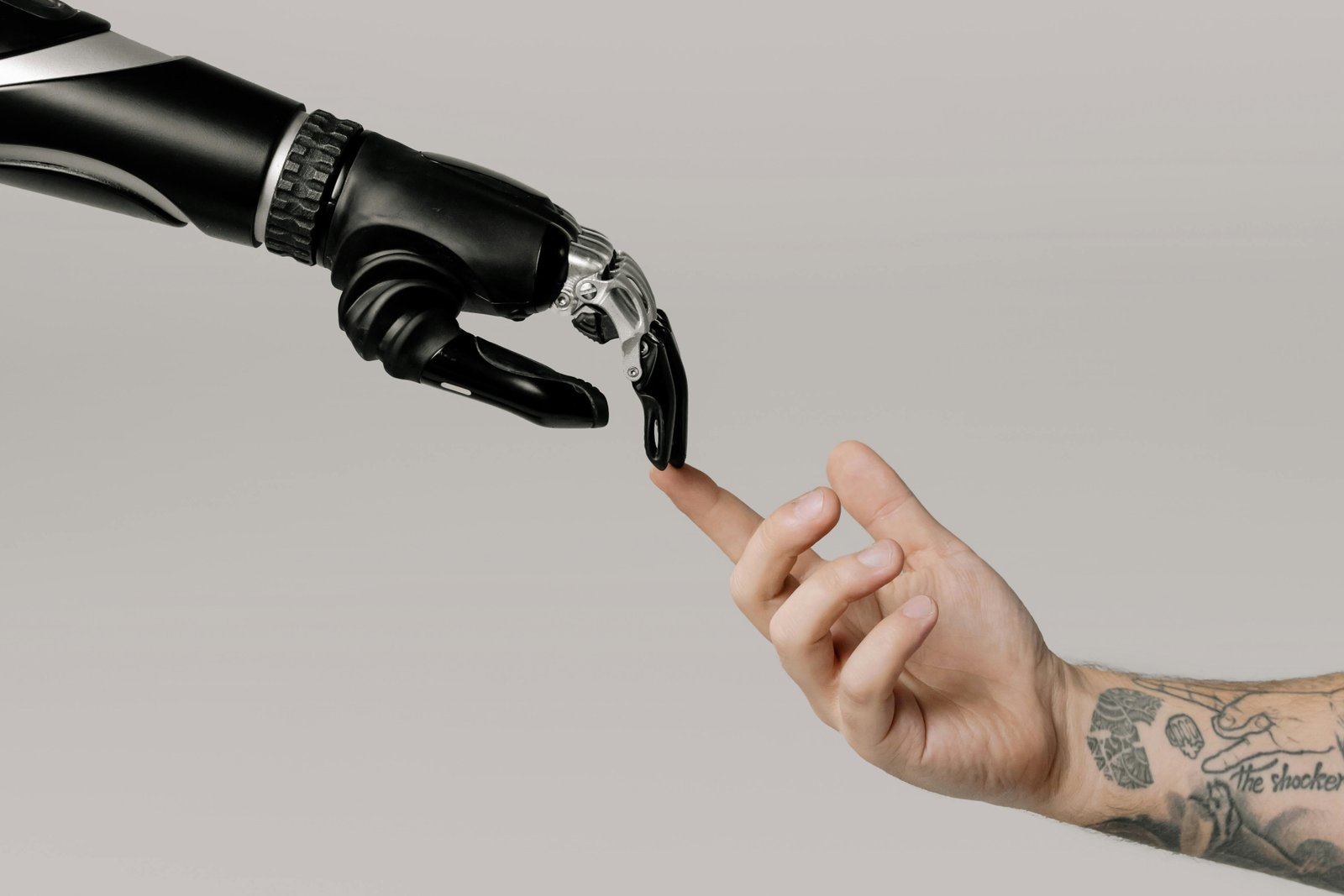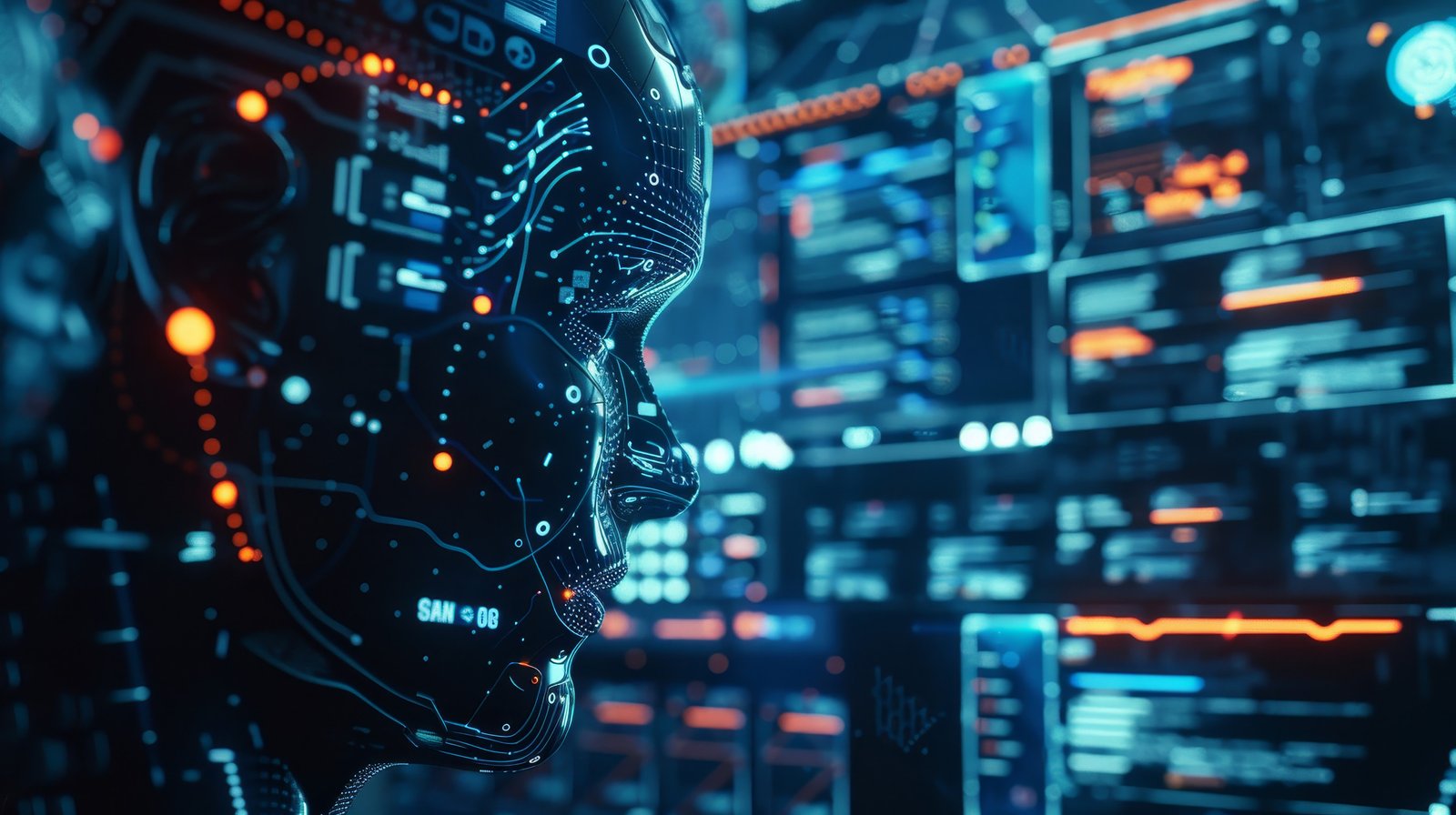Article:
The AI Takeover – Is Everything Automatable?
The rise of artificial intelligence (AI) has transformed industries, reshaping the way people work, communicate, and solve problems. From finance and healthcare to education and creative arts, AI is increasingly playing a dominant role in streamlining operations, improving efficiency, and automating repetitive tasks. However, despite AI's rapid growth, there are certain uniquely human abilities that remain irreplaceable—namely, interpersonal skills, emotional intelligence, creativity, adaptability, and critical thinking.
While AI has revolutionized data processing, analytics, and automation, it struggles with tasks that require nuance, empathy, ethical judgment, and cultural understanding. These essential human skills are what make us adaptable and resilient, ensuring that human expertise remains relevant, even as AI continues to evolve. With technological dominance growing, human skills such as these will play profound roles in enhancing technological innovations and making them more suitable to humanity’s varying needs.
As technology advances, the demand for soft skills and humanities-based expertise is expected to remain strong. This article explores why human-centric fields such as psychology, literature, philosophy, adaptability, and leadership will always have a crucial place in the job market, while also examining how AI and human intelligence can coexist and complement each other.
There is no scope of insecurity, if you understand the tiny details, have a detailed knowledge of AI, and know how to utilize it. Losing sleep over AI dominance may be an amateur’s thing, but as experts, you know it’s your tool to enhance your skill and grow.

AI’s Growing Influence in Every Sector
Artificial Intelligence (AI) is reshaping industries by automating tasks, enhancing efficiency, and enabling data-driven decision-making.
In finance, AI-driven bots manage fraud detection and risk analysis. The healthcare sector leverages AI for diagnostics, robotic surgeries, and drug development. In education, AI-powered tools personalize learning experiences, while in manufacturing, robotics streamline production. AI also transforms retail, legal, and creative industries, offering automated customer support, legal document analysis, and AI-generated art. However, despite its widespread adoption, AI lacks human intuition, ethical judgment, and emotional intelligence, making the need for human oversight and soft skills indispensable. Thus, it leaves enough room for human involvement. In fact, human intelligence and discretion are used to make the best use of AI in different sectors. What it also does is, cement the role, relevance, and demand for human intelligence alongside the growing and deepening importance of AI.
AI lacks human intuition, ethical judgment, and emotional intelligence. It can process and analyze data, but it cannot fully comprehend the nuances of human emotions or make moral decisions. This limitation highlights the importance of human oversight in AI applications. Ethical considerations, such as ensuring fairness in algorithms and preventing bias, remain critical. Furthermore, AI cannot replace the soft skills that humans bring to the table—empathy, negotiation, and creative problem-solving are essential elements that AI cannot replicate. As such, AI does not eliminate the need for human involvement but rather complements it.
The role and significance of AI in several areas is incredible but, again, human intelligence enhances their outcomes.
Automation of Routine Tasks
AI has been highly effective in automating repetitive, data-driven tasks. According to a report by McKinsey Global Institute, AI and machine learning could automate up to 50% of work activities currently performed by humans by 2030. This includes tasks in industries like finance, healthcare, manufacturing, retail, and commerce, and the legal industry.
In the finance sector, AI-powered bots are used for handling customer support, fraud detection, and risk analysis. It plays a crucial role in fraud detection, especially because of the frequency and intensity of its occurrence.
AI has been a great boon for the healthcare sector. It assists with diagnostic imaging, patient data management, and robotic surgeries, multiplying the accuracy and reducing treatment time. It is much appreciated and used thoroughly in the manufacturing industry as well - smart robots perform assembly-line work with greater speed and accuracy than humans. Thus, it amplifies the pace of work with unmatched accuracy.
In the retail and commerce sector, AI enhances customer experience through chatbots, personalized recommendations, and automated inventory management adding an edge to the operations in this industry.
One of the most important sectors that has benefitted from AI is the legal sector. AI-driven tools analyze legal documents and predict case outcomes, reducing manual labor for lawyers and legal researchers. It saves their time and effort of going through a huge number of cases and other data that lawyers had to go through before AI took charge of it.
AI’s Expansion in Creative Fields
AI is now writing books, composing music, and generating art—but does that mean human creativity is becoming obsolete? While AI-driven tools like ChatGPT, DALL-E, and MidJourney can create content, they lack emotional depth, originality, and lived experiences.
According to Harvard Business Review, AI can produce ideas, but it takes human intuition to create meaningful narratives and innovations. AI can process large amounts of data and generate patterns, but it struggles with abstract thinking, symbolism, and human experiences—all of which are crucial in literature, art, and storytelling.

Why Soft Skills and Humanities Remain Invaluable?
Despite AI’s progress, human-centered skills remain essential in various sectors like emotional intelligence and psychology, adaptability and critical thinking, communication and leadership, literature, philosophy, and ethics.
Emotional Intelligence and Psychology: The Power of Human Connection
AI can analyze emotions using sentiment analysis and facial recognition, but it cannot truly understand human feelings. This gap is real and it needs human intervention to meet the gap. Despite the growing importance and widening expanse of AI in different sectors, the soft skills of emotional intelligence, empathy, kindness, and compassion are expected to retain their importance and demand.
AI is smarter, brilliant, accurate, superfast, and efficient but psychologists, counselors, and social workers provide empathy, context, and deep understanding. AI cannot replicate these qualities. This is where soft skills retain their relevance and indispensable importance.
The World Economic Forum predicts that jobs requiring high emotional intelligence (EQ) will continue to grow, as mental health awareness increases worldwide. This confirms a high demand for people with high emotional intelligence, communication, and related skills.
In professions such as therapy and coaching, a human touch is irreplaceable. Patients and clients seek genuine emotional support and trust. AI cannot fulfill these aspects. It requires empathy, understanding, emotional intelligence, compassion, creative thinking, and other soft skills to be a therapist and coach people.
Adaptability and Critical Thinking: Thriving in Uncertain Times
Economic recessions, pandemics, and the like have assured us one thing that we can be thrown off-balance, at any time, and also that we need to be prepared for such times. This calls for flexibility, adaptability, and high critical thinking abilities.
While AI operates on patterns and historical data, it struggles with uncertainty, ethical decision-making, and moral dilemmas. So human beings need to use data read and analyzed by AI to come to decision-making with due consideration of moral perspectives.
As AI automates more jobs, professionals who can adapt, learn new skills, and pivot in their careers will remain in demand. So, people need to consistently upskill or upgrade their skills to remain relevant for the evolving industries. Interestingly, a report by Deloitte found that companies prioritizing human adaptability alongside AI adoption outperform those that rely solely on automation.
AI cannot challenge the status quo, a key trait for entrepreneurs, policymakers, and change-makers who need to drive innovation forward. This requires human intelligence, discretion, decision-making, agility, and adaptability, in short, it needs human excellence to thrive. So, it would be best to utilize the best of AI and complement it with human intelligence for the end purpose.
Communication and Leadership: The Human Touch in Management
Leadership is a highly cerebral task involving an intersection of multiple soft skills. So, depending on AI alone will be a very bad mistake. You need to be at the top of the game. So, to ace leadership, or be a good leader, you need a balanced mix of soft skills with a profound background of thorough AI.
Leadership requires motivation, vision, and emotional intelligence. Successful managers, educators, and policymakers need persuasion, negotiation, and conflict resolution skills, making soft skills indispensable. All of these require human intelligence, understanding, empathy, and more, which are unique human qualities. AI lacks these emotional nuances that add an edge to leadership qualities and differentiate you from others in your rank.
According to a 2022 LinkedIn Learning Report, 93% of employers said that strong communication skills are more valuable than ever in a digital world. It is important to remember that AI can provide insights, but it cannot inspire teams, create vision, or mediate conflicts—all crucial in leadership and corporate decision-making.
Literature, Philosophy, and Ethics: Navigating the Human Experience
AI’s expertise has been helping the civilization to take leaps of faith and make fresh accomplishments. However, when it comes to finer subjects like literature, philosophy, and ethics, it has certain limitations. AI can generate text, but it cannot interpret human experiences, societal dilemmas, or philosophical debates with the depth and complexity that human intellect provides. It can analyze patterns in language and mimic styles, yet it lacks the emotional intelligence, personal experiences, and ethical reasoning necessary to grasp the nuances of human struggles and moral questions. Unlike humans, who draw from empathy, introspection, and cultural understanding, AI relies solely on data, making it incapable of forming original insights, subjective reflections, or evolving perspectives that shape literature, ethics, and philosophical thought.
Similarly, when it comes to literature, philosophy, and history, it doesn’t have much to do because these need perspectives, moral reasoning, and ethical guidance, shaping how societies evolve. AI has not yet evolved to the state of accomplishing such complex and richly valued studies.
Moral principles and a set of other qualities guide AI ethics. It is a growing field, requiring human expertise to ensure fairness, accountability, and responsible AI governance. That’s why it needs human intervention, viz-a-viz soft skills, and expertise in them. The debate over AI's role in decision-making, particularly in law enforcement, hiring, and public policy, requires ethical discussions that only humans can address.

The Future of Work: Humans & AI as Collaborators
Rather than viewing AI as a threat, professionals should see it as a collaborative tool. Companies that integrate AI while upskilling employees in critical thinking, creativity, and emotional intelligence will thrive. So you must invest in learning skills to future-proof your careers and remain one of the most valuable resources.
Another important strategy would be to remain updated with industry trends and technological advancements, use AI for enhancing productivity but remain conscious and not allow it to replace human intelligence and intuition. Above all, you must use and train AI to remain fair and unbiased.
The Balance Between AI and Human Skills
AI is powerful, but it lacks the ability to truly think, feel, or connect on a human level. While it can process vast amounts of information and simulate human-like responses, it does not possess consciousness, self-awareness, or genuine emotions. Human experiences are shaped by intuition, empathy, and personal growth—qualities that AI cannot replicate, making it inherently limited in understanding the deeper complexities of relationships, ethical dilemmas, and emotional intelligence. The future workforce will be defined by a balance between technological advancements and human-centered skills. While AI continues to expand, psychology, literature, adaptability, and emotional intelligence will remain irreplaceable, ensuring that human expertise remains invaluable in an AI-driven world.


